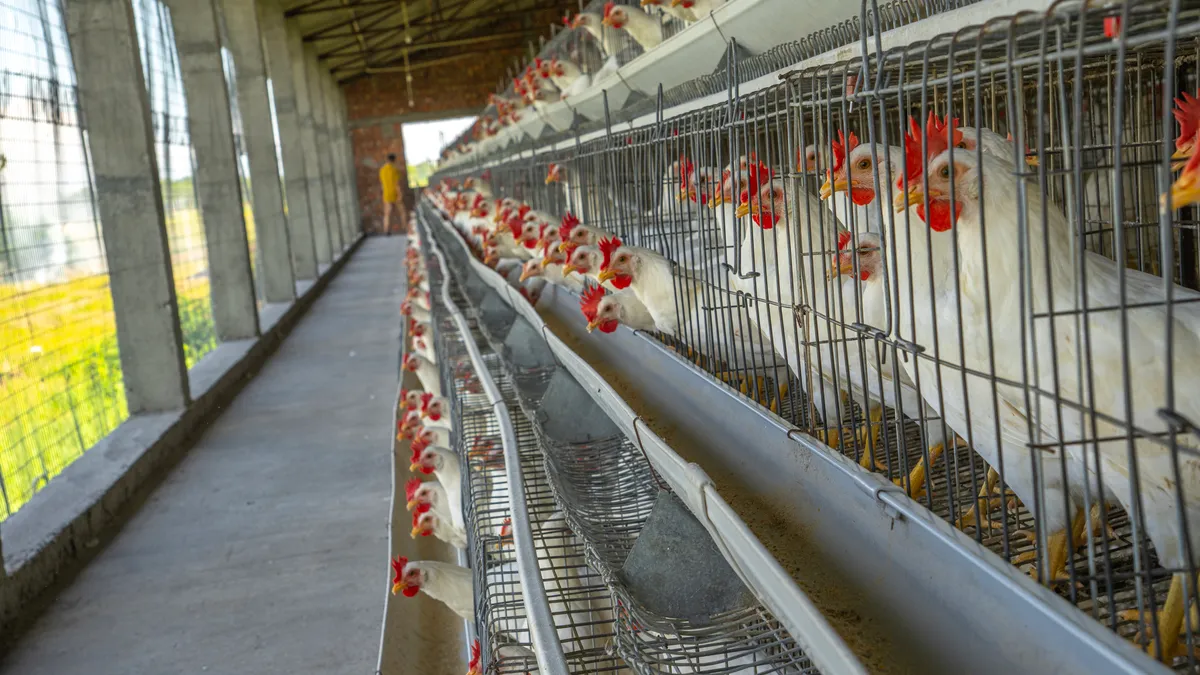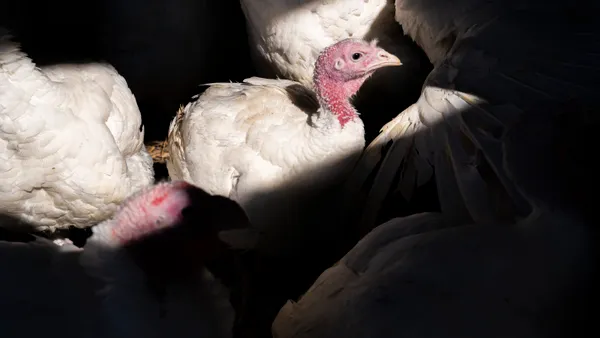Dive Brief:
- The U.S. Department of Agriculture on Wednesday released a host of steps the agency is taking to enhance competition in farming, including a new rule that would require poultry companies to more clearly lay out contract terms to those who raise their chickens.
- USDA will require large processors to inform broiler growers of the costs, facility requirements and other obligations involved with a contract. Separately, companies using a tournament payment system that rewards high-performance growers must provide specific disclosures of how inputs are distributed across farmers.
- As the agency takes more steps to crack down on abusive practices in the industry, USDA is creating a chief competition officer role that will "make sure that enforcements are taking place as they should," Secretary of Agriculture Tom Vilsack told reporters.
Dive Insight:
Strengthened transparency measures for poultry growers are the first of a series of updates the USDA plans to make to the Packers and Stockyards Act, a more than 100-year-old law designed to protect farmers from concentration in the meatpacking industry.
Poultry growers in particular face a "very difficult market," said Peter Carstensen, a professor at University of Wisconsin-Madison's law school and a senior fellow of the American Antitrust Institute. Many farmers invest heavily to comply with processors' contracts, which are typically short term in nature.
"Once you're signed up with one integrator as their grower, it's very hard to switch," he said. "You'd have to make changes in your chicken houses. So farmers are very, very much tied to a particular integrator."
Additionally, growers can often be pitted against one another to compete for payment in what's known as a tournament system. The system distributes money among growers based on factors including the number of birds delivered, their condition and the amount of feed used. Those who deliver fewer birds may be paid "well below their out-of-pocket cost," Carstensen said.
While a tournament system is meant to incentivize growers to be more efficient, weather, disease and other factors involved in raising birds are often outside of farmers' control.
Disclosure requirements could better inform new entrants to the poultry industry of the risks and capital investments involved, empowering farmers to fight for better contracts. Still, critics argue that new disclosure rules do little more than simply inform farmers of the way they're being manipulated, putting the onus on growers to stop misconduct.
Critics also took issue with the fact that the rules also only apply to the broiler chicken industry, and provides exemptions for small processors.
“USDA must do more to actually protect farmers from corporate abuse, beyond merely informing producers how exploitative the system is," Emily Miller, an attorney for Food & Water Watch, said in a statement.
In addition to the poultry disclosure rules, the USDA announced other steps to enhance competition, including a rule that meat must be from animals born, raised and slaughtered in the U.S. to meet the domestic origin requirements for purposes of agency procurement. The department also sent a letter to seed companies reminding them of their obligation to comply with labeling requirements.
“This rule and the other actions we are announcing today bring transparency and accountability to transactional relationships across the poultry industry, seed industry and federal procurement, and they are critical steps in USDA’s competition and farmer fairness agenda," Vilsack said in a statement.











